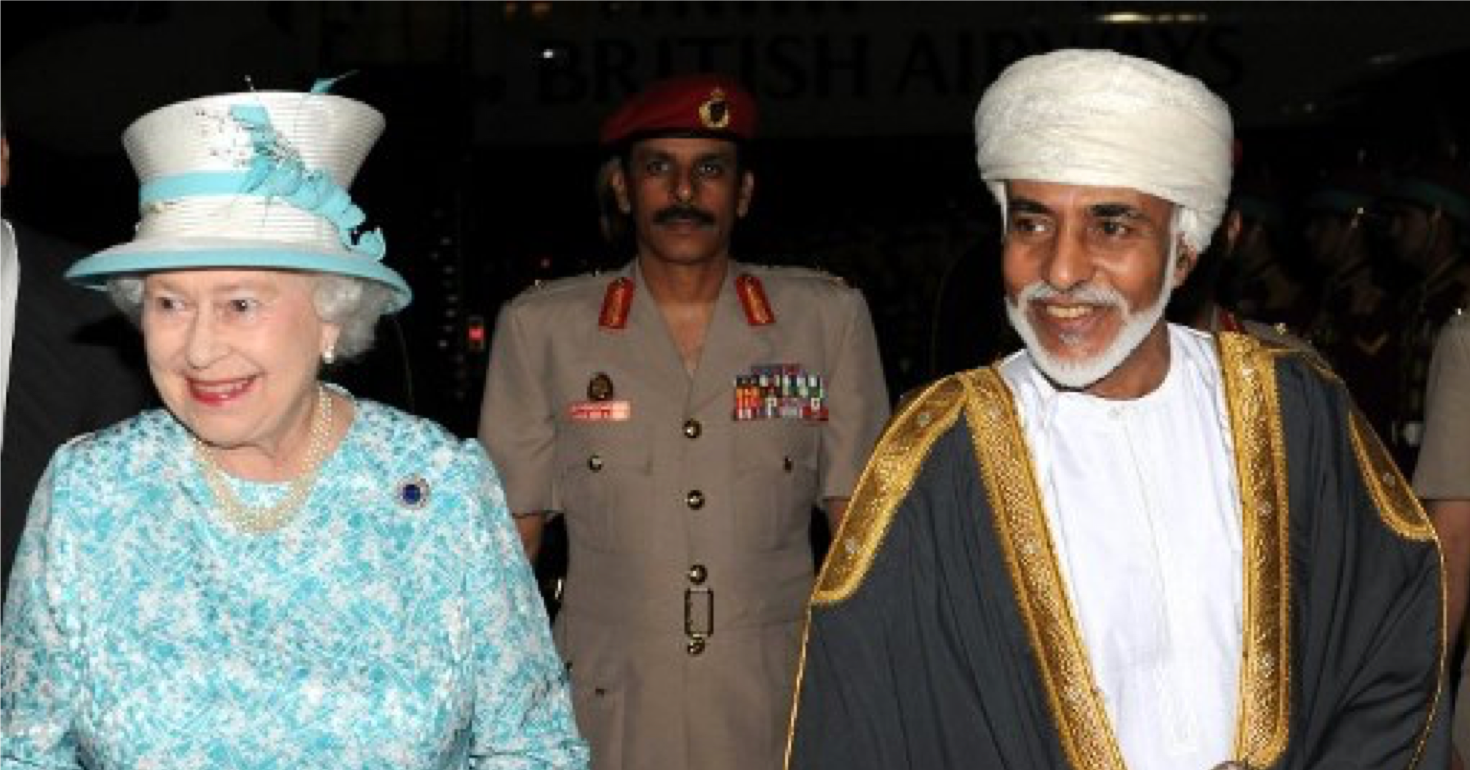One of the Middle East's most prominent leaders, Sultan Qaboos bin Said Al Said, died on Jan. 11 according to Al-Jazeera, quoting Omani state media. He was 79.
Al-Jazeera reported that he had been ill for some time and was believed to have been suffering from colon cancer.
Longest ruling Arab monarch
Qaboos, who seized power from his father in a peaceful coup in 1970, is credited with turning Oman from a quiet backwater into a rich country with 4.6 million people and a high standard of living, backed by substantial oil wealth.
Qaboos also instituted reforms like promoting education and introducing women's rights reforms, including a 2008 royal decree that allowed women to own land and property.
However, he has also been criticised for restricting civil rights, including convicting activists of using social media to defame him.
Friend to multiple rivals
Qaboos was educated at the Royal Military Academy in Sandhurst, UK before returning to his impoverished country to take over from his father with help from the British.
He was perhaps best known as one of the few men in the Middle East who could maintain ties with regional rivals Iran, Saudi Arabia, and Israel all at once.
According to the New York Times (NYT), Qaboos opened up his country, joining the Arab League, the United Nations, and becoming a founding member of the Gulf Cooperation Council.
Having depended on Iranian military aid to quell a rebellion in the early years of his rule, Qaboos maintained his country's relations with the Islamic Republic even after the revolution of 1979.
In the same year, he supported the landmark peace treaty between Israel and Egypt.
The "Switzerland of the Middle East"
Qaboos's policy of open ties made him a useful go-between for the Americans.
In 2013, Oman hosted representatives of both the U.S. and Iran in the Sultan's private villas which led to an agreement on President Obama's Iran Nuclear Deal, even though President Trump backed out of the agreement when he took office.
In 2015, Oman also hosted peace talks between the Houthi rebels and their Saudi-backed opponents, who were fighting a war in Oman's neighbour of Yemen.
Oman also had somewhat of an independent streak, refusing to join in with Saudi Arabia, the United Arab Emirates, and other Arab nations in its 2016 blockade of Qatar.
This made Oman a place where the bickering parties in the region could gather for quiet negotiations and diplomatic talks.
Successor to Qaboos sworn in
Qaboos, an only child who was unmarried for most of his life, left behind no children of his own.
Oman's succession laws are unique in the Middle East.
The throne does not automatically go to the next person in line, but must be chosen by a "family council" within three days of the Sultan's death.
If the family cannot come to an agreement, a sealed letter written by Qaboos before he died is opened. The letter contains Qaboos's preference as to who should succeed him.
According to Al-Jazeera, it appeared that the family opened Qaboos's letter before the three day waiting period, and decided to pick "the one chosen by the Sultan".
On the same day (Jan. 11), Qaboo's cousin Haitham bin Tariq Al Said was chosen to succeed Qaboos.
Challenges for the next-in-line
The next Sultan will take charge at a time of uncertainty.
Chief concerns include weaning the government off oil revenues and making up for a budget shortfall.
In foreign affairs, Haitham will also have to deal with rising tensions between Iran and the U.S., Saudi Arabia and Qatar.
Top image from AFP.
If you like what you read, follow us on Facebook, Instagram, Twitter and Telegram to get the latest updates.
